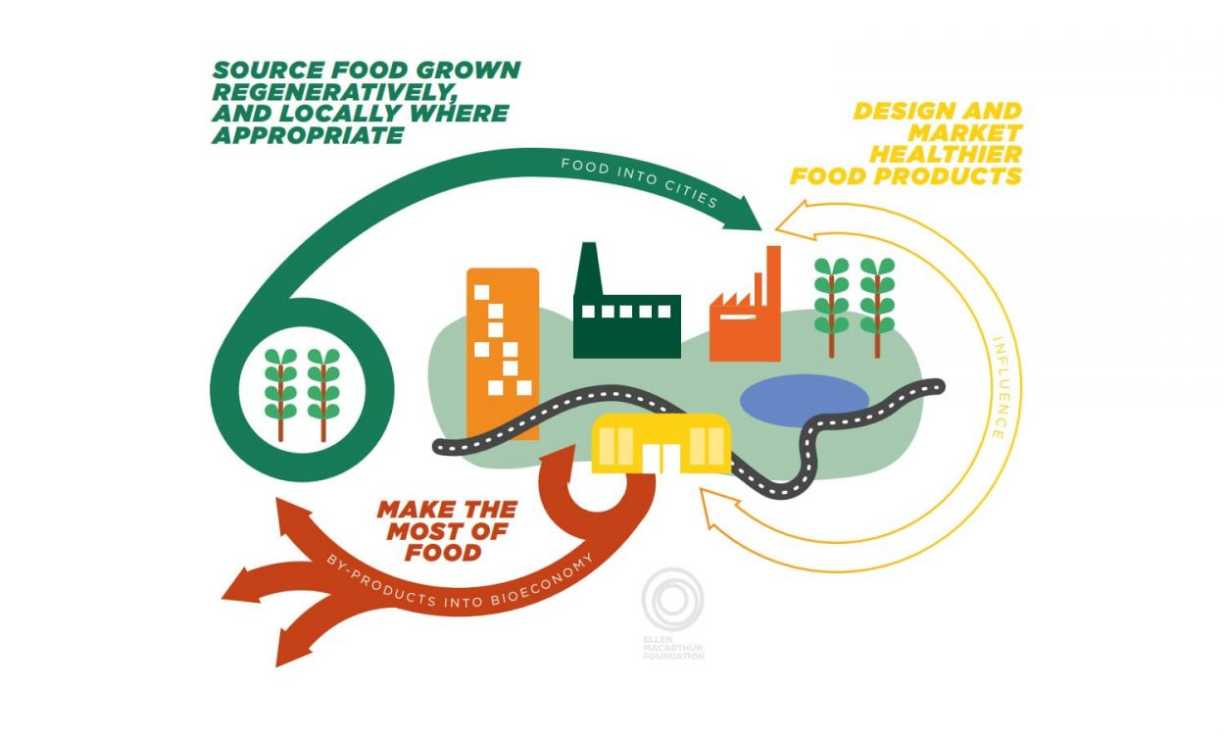News
The Future Of Food

With support from the Postcode Green Trust and Postcode Lottery players, the Ellen MacArthur Foundation launched its new report Cities and Circular Economy for Food at the World Economic Forum Annual Meeting in Davos this year.
The research finds that to ensure people around the globe can eat healthily, there is a need not only to consider what we eat, but how it is produced and what we do with the waste.
Even when trying to make healthy food choices, consumers are at risk because of the way food has been produced. Excessive use of fertilisers, poorly managed manure and human waste, and excessive use of antibiotics in animal farming could contribute to 5 million deaths a year around the world by 2050.
80% of all food is expected to be consumed in cities by 2050, so they are at the heart of this story. Today cities often act as black holes, sucking in resources but wasting many of them – the final stop in the take-make-waste approach. Because of the sheer volume of food destined for cities, they also have influence over what food is produced and how. This means that cities have a unique opportunity to change the game.
In the report, the Ellen MacArthur Foundation sets out a vision for a new food system where
- food is grown in ways that benefit human health and ecosystems,
- waste is designed out by making good use of by-products, and
- food is produced without the need for harmful practices.
There are many benefits in achieving these ambitions. They include reducing greenhouse gas emissions equivalent to taking nearly all the one billion cars in the world off the road permanently, avoiding the degradation of 15 million hectares of farmland a year (an area larger than England), and lowering the health costs associated with pesticide use by $550 billion.
Putting in place a healthy food system can only be achieved with a highly-coordinated approach. Food brands, retailers, city governments, waste managers, and others will all have to work together. Local demonstration projects need to be combined with the global reach of international businesses and platforms. Policymakers, innovators, financiers, and the public - who are asking for a healthier, more transparent, and less wasteful system - will all need to play their part.
The urgency to act is clear - as are the benefits of a circular economy for food. The report offers ambitions that cities can act on to lead this transition. Now is the time to make it happen. Find out more in the Ellen MacArthur Foundation report.
Published: 25/02/2019